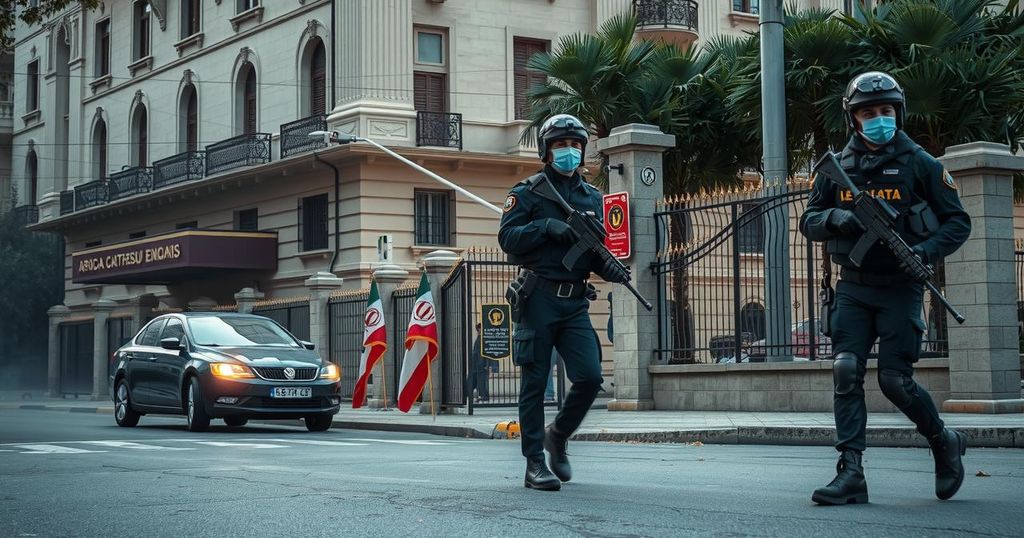Unknown gunmen stormed the Iranian embassy in Damascus as Bashar Assad reportedly fled following the takeover by Islamist rebels, leaving instructions for a peaceful transfer of power. Celebrations erupted among Syrians over Assad’s departure, marking a significant shift in the regional power structure.
On a recent Sunday, unidentified gunmen assaulted the Iranian embassy in Damascus amidst a significant shift in power following the overthrow of Bashar Assad’s regime by Islamist rebels. Iranian state television reported that the attackers likely had no affiliation with the wider rebel faction that succeeded in taking control of the city. The Iranian government had removed a majority of its officials just a day prior, leaving only essential diplomatic personnel. Reports indicated that the assailants vandalized property within the embassy while footage circulated on Arab and Iranian networks, showing disturbances inside the premises.
The developments come as Assad, alongside his family, reportedly fled the capital, signaling the end of the Assad family’s longstanding dominance in Syrian politics. Confusion surrounded his whereabouts following his departure, with the Syrian Prime Minister admitting a loss of communication regarding Assad’s location. Concurrently, Russia stated that Assad had negotiated his exit and left instructions for a peaceful transfer of power. Celebratory crowds filled Damascus, expressing joy over the regime’s collapse, while some engaged in anti-Assad protests.
In the wake of these events, Abu Mohammed al-Golani, leader of Hayat Tahrir al-Sham (HTS), aims to project a revised image of his group, which has historical ties to extremist factions like Al-Qaeda. Experts have warned that HTS aspires to impose an Islamist regime in Syria, radically transforming governance. Al-Golani reiterated that public institutions would remain under the interim oversight of the prime minister until a formal transfer occurs, highlighting the ongoing struggles for control in the war-torn nation, which has been embroiled in conflict for nearly 14 years.
The article captures a crucial moment in the Syrian civil war, particularly focusing on the recent actions taken by rebel forces against entrenched leadership. As Islamist factions gain strength, they have begun to secure territorial control. The Iranian embassy assault represents both a symbolic and literal attack on Iranian influence in Syria, as Iran has been a staunch ally of the Assad government. The geopolitical implications of Assad’s potential departure from power are profound, particularly with Russia’s involvement hinting at shifting allegiances in the region and the weakening of Iranian authority.
The storming of the Iranian embassy and the reported fleeing of Bashar Assad mark a pivotal moment in Syria’s deeply entangled political landscape. With the Islamist group HTS usurping power, the possibility of a new government structure raises numerous concerns regarding regime type and the ensuing conflict dynamics. As the situation unfolds, the international community’s response and the ultimate fate of the Syrian populace remain uncertain.
Original Source: www.foxnews.com







